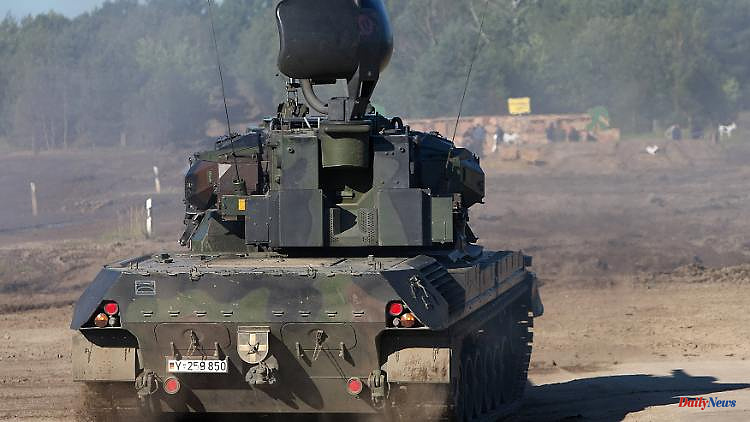Negotiations that end a war become possible especially when the opponents get into a stalemate. This is not the only reason why the 2022 Peace Report considers the German arms deliveries to Ukraine to be correct, but also sees risks.
The federal government now has the backing of four leading institutes for peace research for the controversial delivery of heavy weapons to the invaded Ukraine. In their 2022 peace report, the researchers see military support for Ukraine as a means of driving up the costs of the war for Russia as much as possible, with the aim of “the Russian leadership being willing to negotiate”.
From conflict research, the scientists have "stable knowledge" that negotiations in war situations are possible above all when the warring parties get into a military stalemate. Then the opponents could realize that they could no longer achieve their political goals by military means.
When it comes to warfare, the western alliance is about “supporting Ukraine’s resistance with arms deliveries and putting them in a negotiating position of strength in order to give them a place at the negotiating table,” says Ursula Schröder, head of the Institute for Peace Research and security policy at the University of Hamburg, in an interview with ntv.de.
According to the report, an important factor is increasing Russia's costs for the war. The institutes believe that Germany is already using the right means: in addition to military support, economic sanctions and diplomatic isolation. However, it is important to "show diplomatic ways out of the war" at the same time.
This does not mean the regular telephone calls that Western European heads of state like Emmanuel Macron or Olaf Scholz have with the Russian ruler Vladimir Putin. "Mediation means that you proceed in concert and try to prepare a negotiation in coordination with several actors," says Schröder. Warfare and the preparation of negotiations are not alternatives, but must run in parallel. She does not see any such efforts at the moment.
"We know from research that third parties can help end a war." This role could also be shared by several states selected by Russia and Ukraine themselves to sit down with them.
In order not to miss the so-called "mature moment" that can occur in wars and when such negotiations then become possible, "the technical options for negotiations must be prepared now," according to the expert. This "right" moment is difficult to recognize. One must therefore work on such a scenario behind closed doors beforehand, “even if no meaningful negotiations are to be expected at this time”.
However, this would not be possible without the support of Ukraine, which must also decide for itself on all questions of sovereignty. From the expert's point of view, arms deliveries must be constantly checked to see whether they are still achieving the political goal set for them - in this specific case, the good negotiating position with Russia. Because the positive effects must always be weighed against the negative consequences.
"We know from research that arms deliveries will have negative consequences for people in the region and worldwide in the medium to long term." The danger is therefore very great, especially in the case of so-called “light” weapons, that they will be transferred uncontrolled and unhindered to other countries. Researchers in Ukraine are already seeing “that the delivery of weapons can influence global conflicts because these weapons are resold in the medium term. These are simply risk considerations that you have to be aware of.”
The research institutions also want to know that the danger of a nuclear escalation is taken into account. "We are convinced that risk minimization must be pursued," says Schröder. You have to think very carefully about which political steps Russia could perceive as an escalation and how to minimize the risk. From the researchers' point of view, this is not about a "right of veto" over Germany's foreign policy decisions, but about including "the fact that the nuclear escalation potential has just become real. And that is dangerous”.












